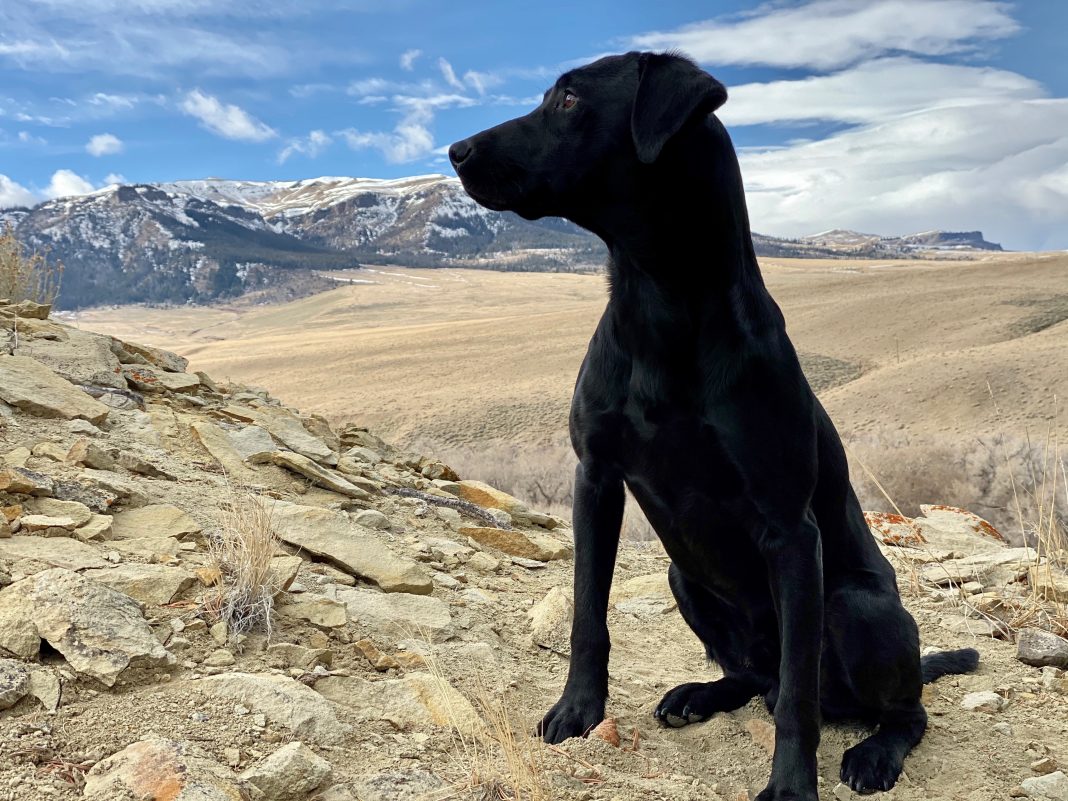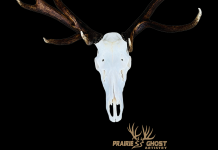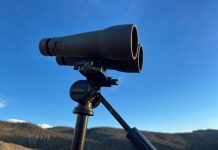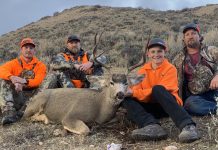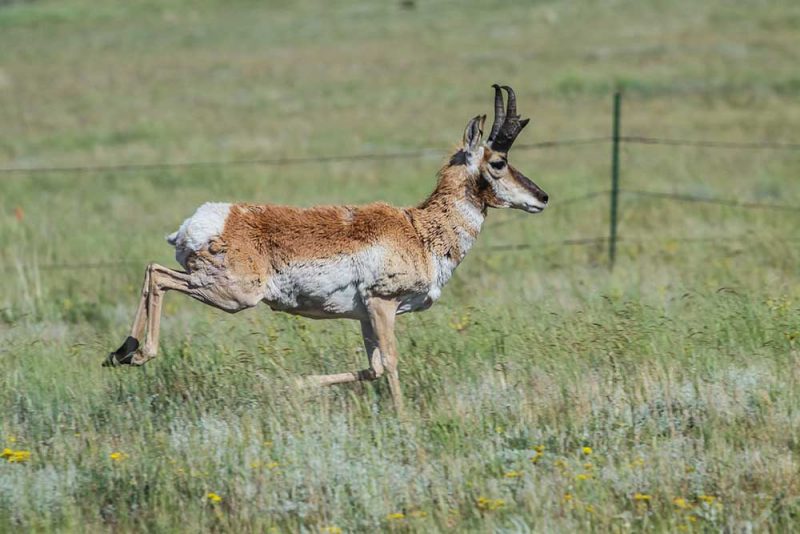TOP 10 HUNTING DOGS – It’s a ridiculous argument in all honesty – rhetorical at the very least. Which hunting dog is the best? What dogs would make your top ten hunting dog list?
It’s a biased argument and discussion from the get-go. No matter how much factual data you may believe you find to support your claim to God’s gift to hunting dogs – you will never change the opinion of any hunter who owns a dog. Their dog is the best, and by association so is their dog’s breed – period. You’d have better luck trying to convert a Broncos fan in to a silver and black enthusiast.
What is that old saying about a snowball’s chance in Hades?
There, I said it – brutal honesty. What you will read as I lay out the top ten dogs is based on my own personal experiences, my own biases and my own idea of what characteristics a great hunting dog should have in their proverbial toolbox of skill sets.
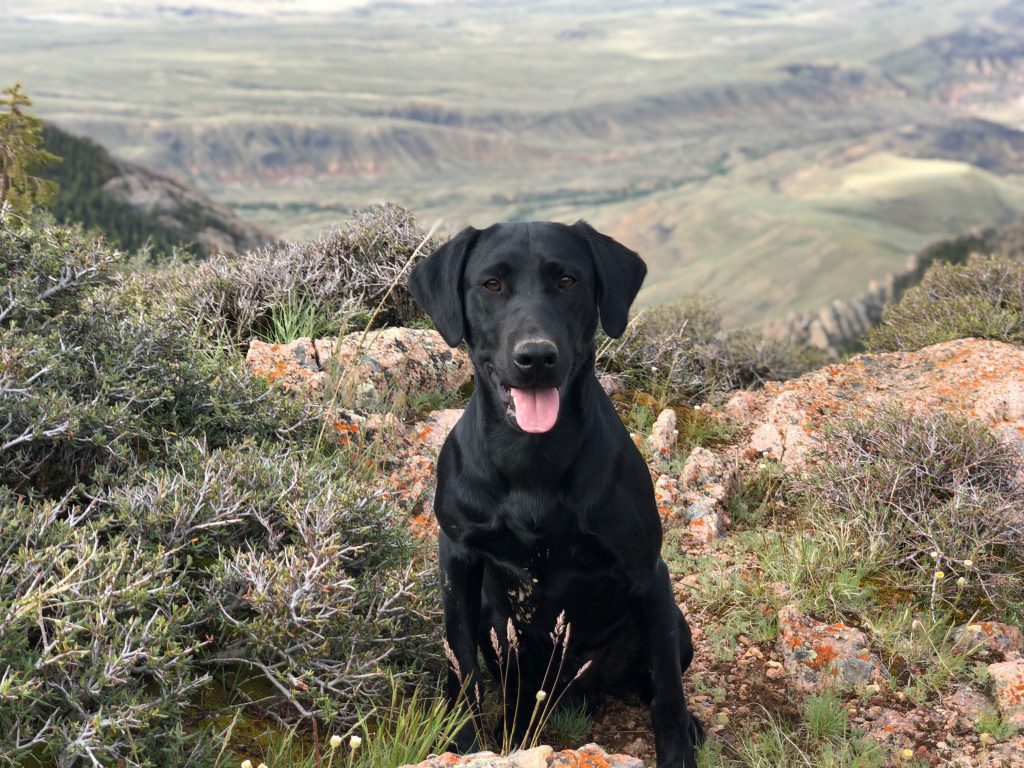
What I will be writing is, however, complete fact. If you doubt that – just ask me.
In all seriousness, less the dog and more you and your wants are the questions you should be asking when deciding the breed of dog you should purchase. What type of personality do you want your dog to have? Will pup be a member of the family as well as hunting partner? You just hunting waterfowl, or is upland hunting in your plans? Do you need a dog with a specific skill, or do you want a dog that can be diverse in their hunting approach?
Must Have Characteristics
Before the drumroll of our top ten list – I’d like to touch on the characteristics you should be looking for in all dogs – regardless of breed. If you are new to the sport, and this is the first dog you plan to purchase it is important to understand what things you can train your dog and what things you cannot train your dog (“The Stuff” – the natural abilities they are born with) to be successful.
The dog you are looking for must come from parents that have natural prey drive. Just because the ad in the local newspaper says “Labrador Retriever” does not mean you’re getting a hunting dog. You could end up with a couch potato that eats you out of house and home, is terrified of gun shots, doesn’t like the water, and who has a tendency to look at you and say “that wasn’t very bright, better go pick that up” when you throw a bumper for him/her to retrieve.
The AKC registers breed standards, which is based off of show characteristics, looks, and desires – nothing about a dog’s personality or hunting ability. “Registered Lab Puppy” ads simply mean, you’re getting a dog that will most definitely grow up to resemble a Labrador, nothing more.
At eight weeks, a quality dog will show prey drive, alertness, and intellect. Look for both. When you have an item in your hand and move it from side to side does pup follow the item? If you throw it, does pup chase? Is pup focused on you when you speak? Is pup alert of their surroundings?
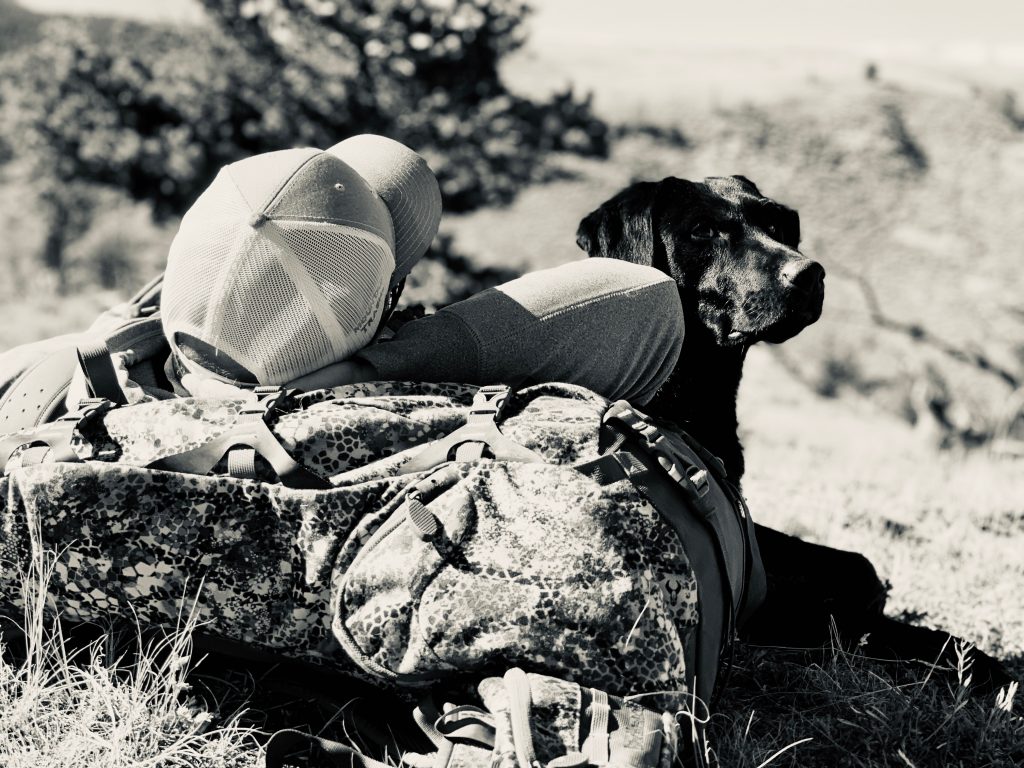
The easiest way to ensure a quality dog is to purchase pup from a reputable breeder of proven parents. These folks also guarantee their dogs against health issues as they responsibly test all breeding male and females before using said dogs in their breeding programs. These folks would also happily run mom and dad of pups so you can see their abilities.
Natural abilities such as prey drive, alertness and intellect cannot be taught. Either the dog has it, or the dog does not. Without intelligence or prey drive – pup cannot be trained to hunt. Finding a dog with the heart and mind for the task you expect is of paramount importance – no matter the dog breed.
Want a hunting partner and a member of the family? A recent trend amongst gun dog breeders is matching parents that produce dogs that have a non-stop motor in the field and the proverbial “off switch” in the home. Some hunting dogs that are high strung 24/7 make family member a tough proposition.
Prey drive, intellect, alertness and off switch are all characteristics passed on from mom and dad – developing these natural abilities and training pup is on you. You can have the best bred dog of highest potential, undeniable prey drive, and intellect off the charts – you put him in a kennel and only work with him when you have time – you’ll have a pain in the hind side, and a horrible experience. Only bring a hunting dog home when you have the time, the room, a training plan, and a job you can give pup. You’re 50% of the equation of any successful hunting dog – make sure you’re up for the tough task of puppyhood.
Puppyhood – I digress, material for an article another day.
So, what breed is the very best as a hunting partner? Let’s maintain the suspense a bit longer and start with the number ten hunting dog.
Beagle
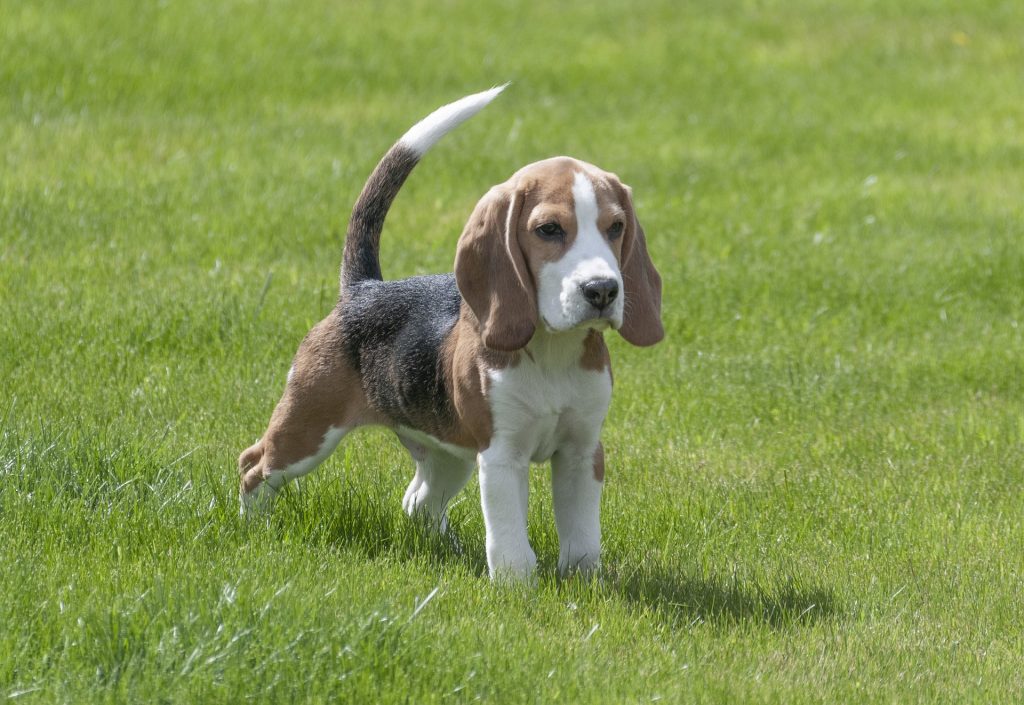
The Beagle is a popular breed of hunting dog because of their size and even personality. Known for their superior sense of smell, the Beagle is primarily used to hunt rabbit.
Brittany Spaniel
Although labeled a “spaniel” the Brittany is a diverse hunting dog who points versus flushing and is an exceptional retriever. The Brittany Spaniel has a “soft-hearted” personality requiring more subtle forms of corrections. How they are socialized as a puppy because of this is very important.
Chesapeake Bay Retriever
The Chesapeake is very similar in appearance to the Labrador Retriever. The primary difference is their wavy coat versus the smooth coat of the Labrador. A strong water dog, the “Chessie” was first used to retrieve waterfowl and pull fishing nets. They are happy dogs with bright personalities that absolutely love the water and have a willingness to do whatever you ask of them.
Coonhound
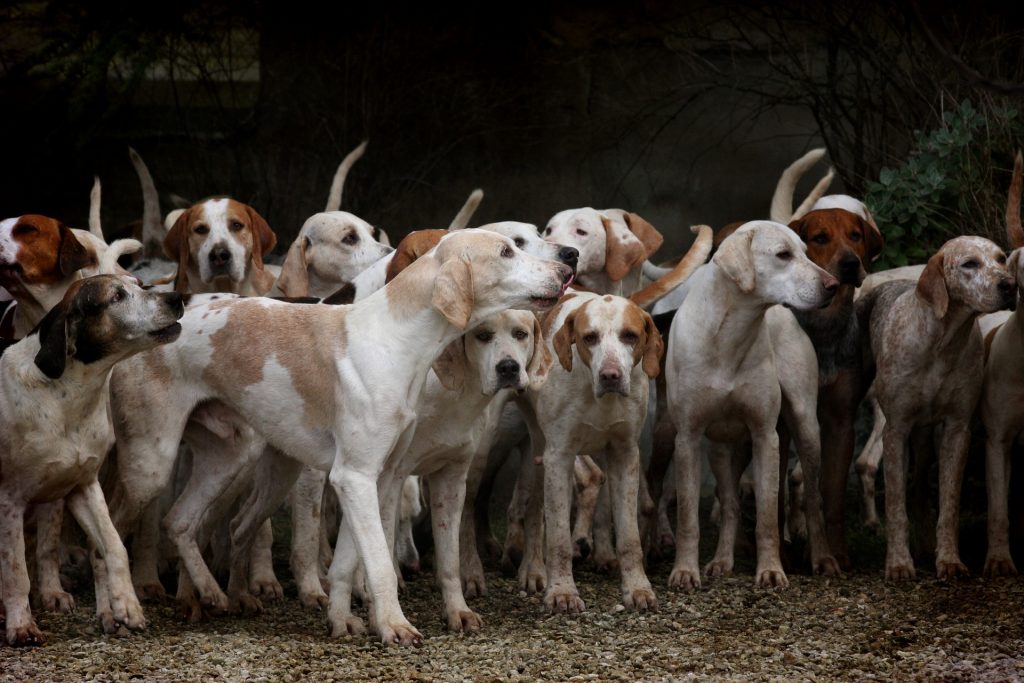
When I was a young person, after reading arguably one of the greatest hunting books of all time, “Where the Red Fern Grows” I would have ranked the breed that brought us Old Dan and Little Ann much higher. The Coonhound is an athletic high energy dog who can track its prey for miles – and there are few more identifiable sounds in the high country than the bay of the Coonhound. Used in most parts for racoon, the Coonhound is an equally accomplished mountain lion hunter.
American Foxhound
The Foxhound is a high energy dog with exceptional athleticism and strong tracking abilities. The foxhound needs exercise and room to move. Obedience training is important with the foxhound as their prey drive and focus on a scent could lead them to grow blinders to anything, but the scent they are tracking – including you and your commands. They are used for their name sake, fox, but are also exceptional deer hunters.
German Wirehaired Pointer
The Germain Wirehaired Pointer (GWP) is a very loyal, high energy, athletic hunting dog. They require a job and exercise to remain a balanced member of your family. They too are a highly intelligent gun dog that will do whatever you ask of them. Known as pointers, the GWP is an equally accomplished retriever.
Springer Spaniel
There is not a more diverse separation of the sporting dog group between show and field than the Springer Spaniel. Not only is there a distinct difference in appearance, there is an equal distinction in ability. A hunting dog wouldn’t be caught dead at a dog show – which is good for the Springer as the hunting variety of the breed would be a quick toss. The Springer is an energetic friendly dog known for their flushing and retrieving ability. As is commonplace with most of the sporting group of dogs, they are loyal, do whatever you ask of them companions.
Golden Retriever
The Golden Retriever is an excellent all-around hunting dog. They are a loyal highly intelligent dog that is very fond of both land and water retrieves. Always ranked among the top of every dog list you stumble across rather it be hunting, family or all-around dog – the Golden Retriever is an American icon in the field.
German Shorthaired Pointer
Much like its cousin the Longhair, the German Shorthaired Pointer (GSP) is an excellent pointing dog as well as retriever who has superior athleticism on land and in water. Like all sporting dogs, the GSP needs consistent exercise and employment, but they are a very well-suited family dog. Charismatic, loyal and very willing, the GSP is an exceptional all-around hunting dog.
1.Labrador Retriever
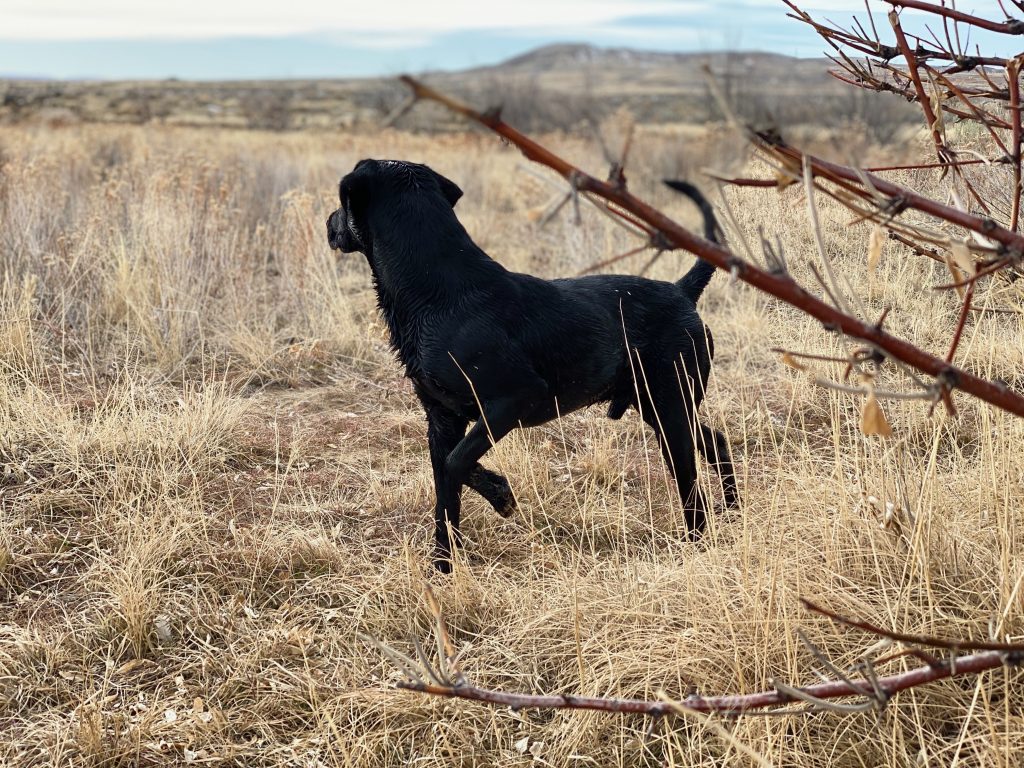
What can’t be said about the Labrador Retriever? Loyal, willing, eager, highly intelligent, alert and personable, the Labrador is arguably the best all-around hunting dog on the market. Excellent on land, in the water and at home – they are the perfect hunting partner and member of your family. The only drawback to the Labrador is their popularity and high demand. When purchasing a lab pup, it is paramount you seek reputable breeders as the Labrador breed suffers from a plethora of genetic health issues due to back yard breeding and poor matching of male and females. Health Guarantees and Health Tested parents are something you want to make a part of your checklist when purchasing a lab pup. The Labrador is able to adapt to countless environments and job titles. They hunt all species of upland and migratory bird; they can be trained to find shed antlers as well as track shot deer in thick cover. There are even Labradors that will point for you – making said dog able to point, flush, retrieve and track. There isn’t a hunting dog with a longer list of abilities or more equipped toolbox of skill sets.
The end result of any top ten list is disagreement and dialogue. What dog have we missed, what dog is ranked too low or too high? It’s a passionately debated topic – best hunting dog. Long time hunters who use dogs might dot your eye quicker if you chastise their dog versus their spouse.
As it should be. The one undeniable fact of hunting dogs – and the one commonality amongst them all is their loyalty and their willingness to run through a wall for you. Hunting dogs are a rare occurrence in a hunter’s life – complete and total selfless service to their master, you won’t find a supreme being in the same class as a quality four-legged hunting partner.


